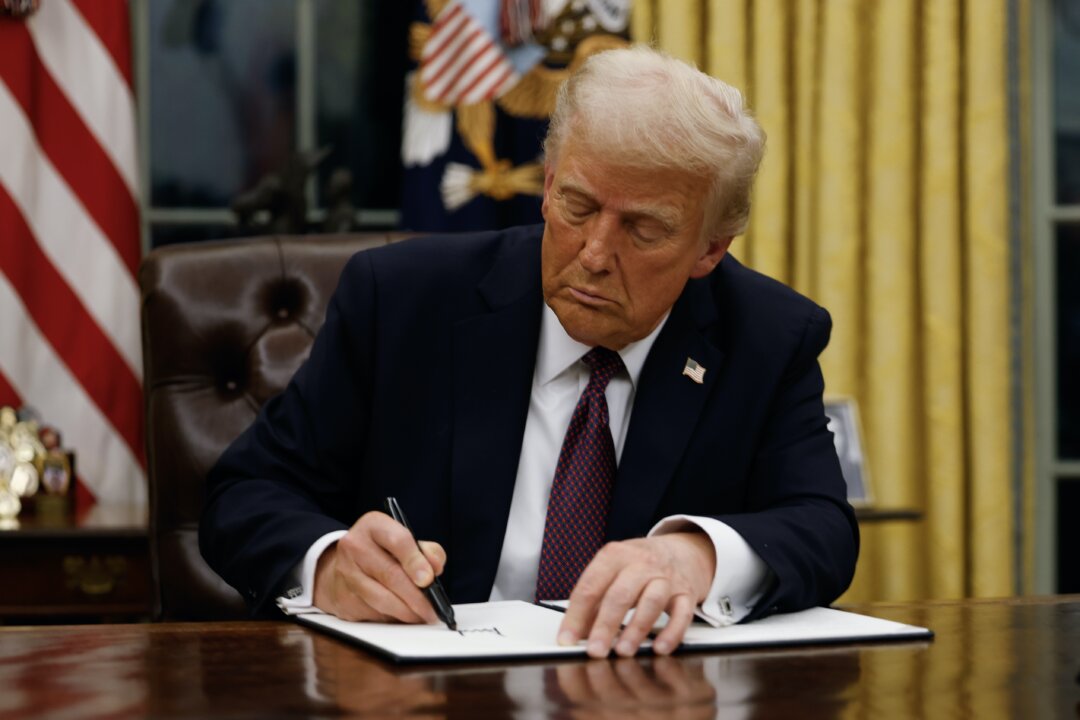For every new federal regulation agencies propose, 10 must be cut from the Federal Register, according to the new rules.
President Donald Trump signed an executive order Jan. 31 directing agencies to limit the number of regulations they impose and eliminate 10 existing policies for every new rule enacted.
“This practice is to ensure that the cost of planned regulations is responsibly managed and controlled through a rigorous regulatory budgeting process,” Trump wrote.
Titled “Unleashing Prosperity Through Deregulation,” the order is intended to remove regulatory obstacles to growth.
“The ever-expanding morass of complicated federal regulation imposes massive costs on the lives of millions of Americans, creates a substantial restraint on our economic growth and ability to build and innovate, and hampers our global competitiveness,” the order reads.
Deregulation is needed, the president wrote, because many businesses and consumers find the rules difficult to understand.
There are currently more than 200,000 federal regulations, according to the National Archives.
Reducing regulations is a key element of Trump’s economic policy, meant to improve opportunities for businesses and job seekers while strengthening national security, according to the order.
The new policy also aims to cut unnecessary expenditures for taxpayers. The goal is for all regulations imposed in a year to cost less than the amount saved by those repealed.
Regulations related to foreign affairs, homeland security, the military, and immigration agencies, among others, are exempt from the new rules.
During his first stint in office, Trump oversaw a rate of eight and a half regulations rolled back for every new one implemented—significantly outpacing the two-to-one ratio he promised on the campaign trail.
Those reductions potentially reduced costs by up to $220 billion, according to a statement from the White House at the time.
Deregulation legislation passed by Congress and signed into law by the president in 2019 boosted real incomes by more than $40 billion annually, according to the statement. In total, those prior deregulation efforts led to more than 6 million new jobs and increased wages, the White House estimated.
The president has held that fostering deregulation can reduce the time and money businesses must expend on compliance.
“We slashed more job-killing regulations than any administration had ever done before,” Trump said during his farewell address after leaving the White House in 2021.
From water and energy to health care and technology, and beyond, Trump has long advocated the idea of regulatory reform to allow free markets to dictate pricing and best practices.
Some critics said the regulations are in place to hold businesses accountable while others point to concerns about environmental protection, labor rights, and other issues they said are threatened by deregulation.
“As regulation in the United States has marched upward in recent years, many of these maladies have been manifested in the U.S. economy,” the report concludes.

